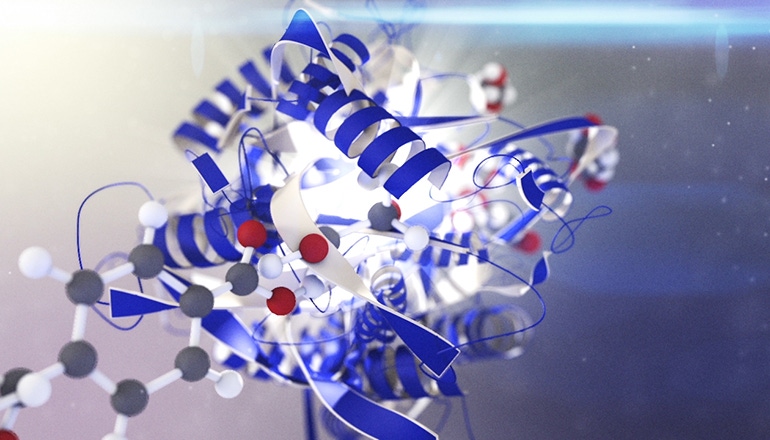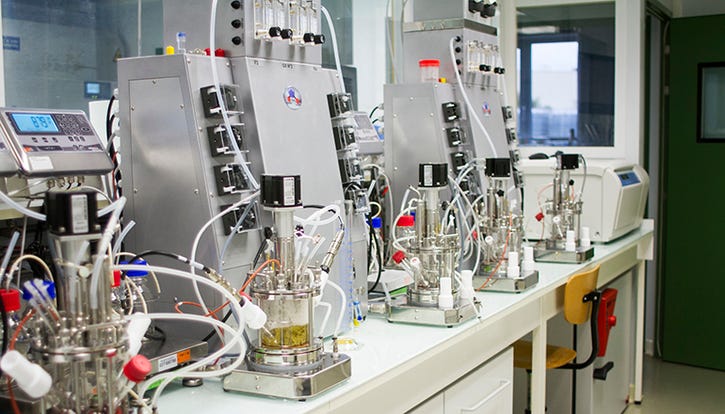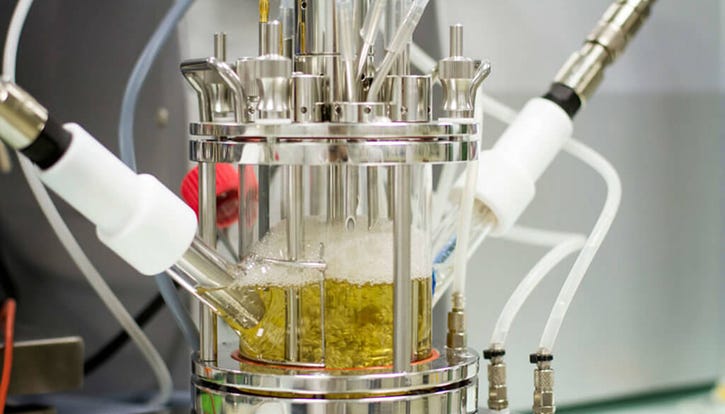The company has developed a unique, sustainable technology using highly specific enzymes that can recycle PET plastics and polyester fibers feedstock.

Companies across the globe are developing new ways to reduce plastic waste, which has become a growing problem of concern. Some are working to clean up recycling streams, some are using recycled plastic to create new products, and some are exploring new and innovative technologies.
One company bringing its advanced technology to market is Carbios, a France-based biotech startup that has created a biological solution to fully recycle plastics. Carbios’ technology leverages enzymes that fully break down polyethylene terephthalate (PET) plastic waste and polyester fibers feedstock to successfully produce consumer-grade, 100 percent recycled plastic.
“Carbios is the first and only company to combine two sciences that are solutions for the end of life of plastics,” says Martin Stephan, deputy CEO of Carbios. “We make a circular plastics economy possible—it’s a circular economy to a point where large PET producers are viewing this [process] as the future of the industry.”
The technology’s process consists of a few steps. First, the PET plastic waste is combined with water and Carbios’ proprietary enzymes, heated up at low temperature and churned. Then, within a few hours, the enzymes decompose the plastic, transforming it into the material’s “basic building blocks” called monomers. The monomers are then isolated, separated, purified and used to produce consumer-grade, 100 percent recycled plastic that’s similar in quality to virgin material.
“At the pilot scale, we have demonstrated that it takes about 10 hours to depolymerize 90 percent of the feedstock made of PET waste,” explains Stephan. “We don’t think it’s necessary to go up to 90 percent on the industrial scale, however, so we only need a few hours for the depolymerization reaction before we send the material through the other steps.”
The technology, which is expected to launch in 2021 through the operation of a large demonstration plant, took quite a few years to develop. In 2012, Carbios launched ambitious funding, partially by a European leading venture capital firm named Truffle Capital and partially by French grant subsidies, for the development and testing of its technology.
About 60 scientists worked together on the technology, testing it and perfecting it over the course of a few years. Then, in 2017, Carbios and L'Oréal, a worldwide beauty industry leader, entered into a five-year agreement to jointly found a consortium for bio-recycling of plastic on an industrial scale.

“L'Oréal has been committed to an ambitious sustainable packaging program for several years now,” said Philippe Thuvien, vice president of packaging and development for L'Oréal, in a statement. “We currently use up to 100 percent recycled plastic for several different products. We’ve decided to go even further: with this innovative Carbios technology, L'Oréal is helping to make bio-recycling available on an industrial scale. It’s a wonderful opportunity to protect the environment, and this consortium will also help boost the circular economy.”
The consortium received additional support in April 2019, with the addition of Nestlé Waters, PepsiCo and Suntory Beverage & Food Europe. Under the terms of their agreement, the consortium partners’ ambition is to bring Carbios’ PET-enhanced recycling technology to the market and increase the availability of high-quality recycled plastics to fulfill their sustainability commitments. The collaboration includes technical milestones and support for the efficient supply of consumer-grade, 100 percent recycled PET plastics for global markets.
Earlier this year, Carbios demonstrated that it could make 100 percent recycled plastic bottles using this technology, and it also secured a patent from the United States Patent and Trademark Office. This patent application recognizes Carbios for its invention of a proprietary method of recycling complex plastics, including colored, opaque and multilayer products containing a mix of PET and at least one additional component (e.g., polyolefins, vinyl polymers, rubber, cotton or nylon fibers, paper, aluminum, starch, wood, etc.).
This patent is the second one in the U.S. that has been applied to Carbios’ recycling technology and protects Carbios’ innovation through 2033. In addition, Carbios owns 127 titles worldwide representing 32 patent families, six of which protect its proprietary method of recycling in full and seven of which are related to enzymes that degrade PET.

“This patent confirms Carbios’ unique expertise and leadership in developing an infinite recycling solution for all kinds of PET waste, particularly types that are barely treatable using traditional recycling processes,” said Jean-Claude Lumaret, CEO of Carbios, in a statement. “Demand for technology that facilitates a circular economy is growing rapidly, and we are at the forefront of providing global players an efficient alternative that protects the environment.”
The company plans to soon break ground on its first demonstration plant, which is expected to open in 2021. By 2022, the company hopes to grant licenses and have its technology operating on full scale PET production lines.
“It’s important to understand that the new technologies coming out in the market have advantages,” says Stephan. “There’s a need in the world for improved collection efficiency, and we all need to work together to increase the rate of collection and sorting to make plastic waste available for new technologies like ours. Our concept has been proven, and we expect to scale up, but collection really needs to increase in order for us to do that. That’s our biggest challenge for the coming years.”
About the Author(s)
You May Also Like




